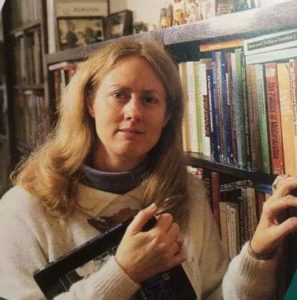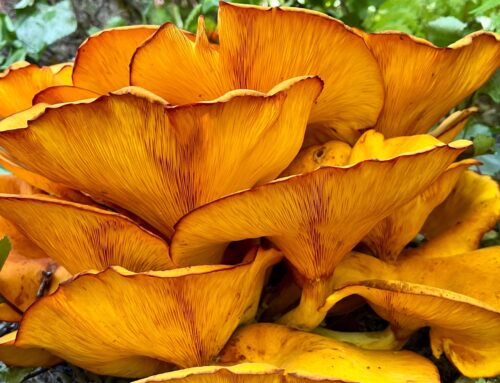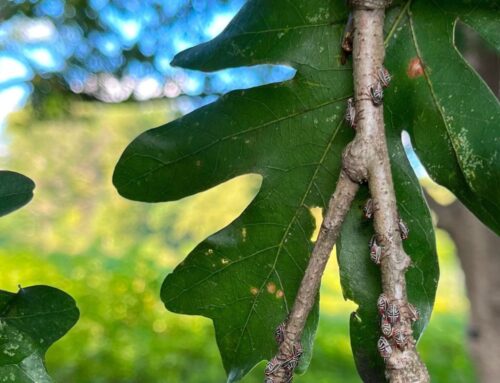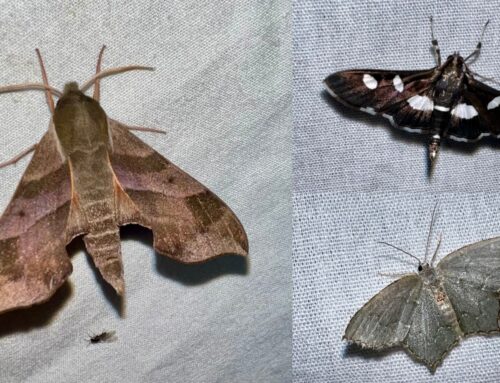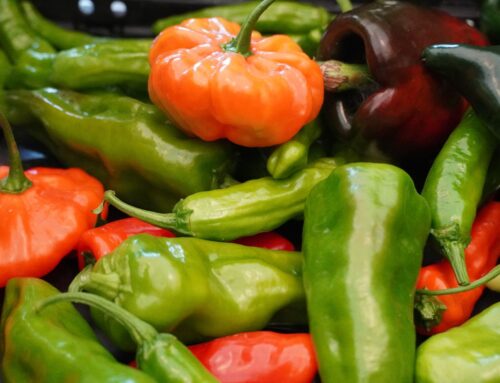When my friend came to me this spring and said she wanted to hold a volunteer event at Tyler, I was happy to say yes! After a long year of uncertainty from the pandemic, this felt like the perfect moment to practice hope and celebrate the beginning of a return to normalcy by doing something good.
My friend, Katie Thompson, had held this volunteer event once before at Tyler, back in 2018 when she and a team of friends and family came out on a rainy Saturday morning to plant flowers in the Barn Garden. We were gardening that day in memory of her mother, Joan Thompson, who had passed that winter from Alzheimer’s. But that volunteer event was more than just a way to celebrate Joan’s life. It was a fundraiser whose goal was to honor every person lost to Alzheimer’s and to fund research to find a cure.
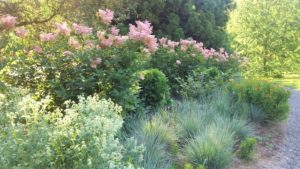
Each year, around June 20th, the Alzheimer’s Association runs an event called ‘The Longest Day’. This event is a fundraiser for the Association where teams of people are invited to do an activity – any activity at all – meant to honor the person they lost to Alzheimer’s Disease. Participants ask for donations to sponsor their activities and all the proceeds go to Alzheimer’s research.
Back in 2018, when Katie decided to do an event for The Longest Day, she knew she wanted it to be about gardening. Her mother loved to garden, and when she wasn’t teaching at the University she could often be found in the flower beds that surrounded her home in the neighborhood where Katie and I were raised. But Katie knew it couldn’t just be about gardening. Dr. Joan Thompson was an accomplished woman who was dedicated to building and sustaining community, educating young people, and creating active and engaged citizens of our nation and the world. Joan would want anyone coming out to honor her memory to give back and do something good.
That’s what brought Katie to Tyler. At the time I was working for the Horticulture Department as a gardener managing the Barn Garden landscape. In 2018, Katie donated money to the Arboretum to purchase perennials. In the pouring rain, we planted them – including queen of the prairie (Filipendula rubra), mountain mint (Pycnanthemum muticum), and garden phlox (Phlox paniculata) — all of which continue to grow in the Barn Garden today where yearly they feed the bees and butterflies who visit the garden.
This year, after deciding not to host an event in 2020 due to the pandemic, Katie wanted to get back out again. She had a team of friends and family — I just needed to find the work.
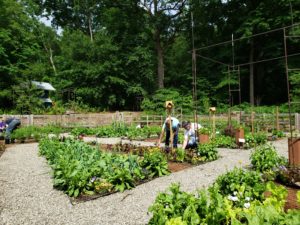
Lucille’s Garden seemed like the perfect place. We wanted to add some pollinator plants to the garden, bring flowers into the landscape, and invite beneficial insects into a vegetable garden where they could help us grow produce. Katie very generously offered to donate the money to purchase plants again, as she did in 2018. Maggie Costello, Curator for Lucille’s Garden, also let me know that she could use some extra sets of hands to assist with the harvest.
So on June 12th at 9:00 am, our team of nine people rolled up our sleeves and got to work. We planted some beautiful perennials, including willow-leaved sunflower (Helianthus salicifolius), blazing star (Liatris microcephala), and brown-eyed Susan (Rudbeckia triloba). We also brought in the day’s harvest of spring greens, peas, and herbs — in total donating 58 pounds of produce to the Media Food Bank, all while raising more than $800 for Alzheimer’s research.
Katie had this to say: “I just wanted to pass along a thank you to you and Maggie, and Nancy, and everyone at Tyler. I’m really having trouble expressing how much I appreciate the work you all put in to make this happen, letting us come to Tyler. I keep thinking how much my mom would have enjoyed that morning. We planted, we harvested, we helped the community, we got outside, we made the world a little more beautiful. Thank you all so much for making it happen.”
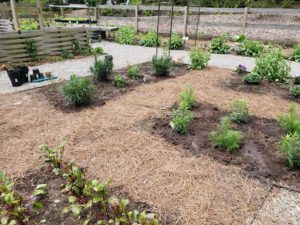
I knew Joan for many years, and I can see how much she would have loved this event. She would have loved planting flowers in a garden where the whole community could enjoy them. She would have loved harvesting food that would feed families in need. She would have loved the sight of people laughing and having fun and the sounds of children laughing and playing in the Children’s Play Area. She would also have loved what an event like this one says about community and the people who build it — that when you think beyond yourself and make the decision to come together you make the world better for everyone, from the bees and the butterflies who will enjoy the flowers this summer and fall, to the people who will make their dinner from fresh produce, to the families who will stroll through Lucille’s Garden to learn more about how food is grown.
That is what happens when we come together as a community – we leave a legacy that grows.
